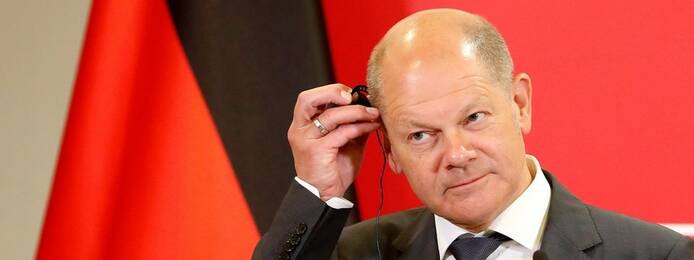On Germany’s reluctance – Der Spiegel:
‘Scholz and his government are clearly playing for time. Initially, they didn’t believe that the Ukrainians had a chance against Russia and sent the bare minimum necessary for plausible deniability, starting with 5,000 helmets. Later, it was a mixture of incompetence and a lack of will – and a desire to hide behind its allies. Not to mention the refusal to take international leadership.
It seems likely that Scholz would never have delivered any weapons at all without massive pressure from abroad and from within his own governing coalition. The chancellor has had to be pressured into taking every single step. Just two days before Scholz announced the planned delivery of the anti-aircraft systems, Ukrainian Foreign Minister Dmytro Kuleba told the Italian daily La Repubblica: "There are countries from which we are awaiting deliveries, and other countries for which we have grown tired of waiting. Germany belongs to the second group." Within the upper echelons of Scholz’s Social Democrats (SPD), such comments are considered the height of impudence.’
(…)
‘The Bundesnachrichtendienst (BND), Germany’s foreign intelligence agency, fears that Ukrainian resistance could even be broken in the next four to five weeks. In a number of classified briefings in recent days, BND analysts have noted that while the Russians are moving much more slowly than they did at the beginning of the war, they are able to conquer small bits of territory each day. The BND thinks it possible that Putin’s troops could bring all of the Donbas under their control by August. Which means that it makes a huge difference whether German weapons are delivered next week or at some point in August.’
(…)
‘But those hectic days immediately following the Russian invasion would also determine the course that has been interpreted by the rest of the world as timidity. Instead of preparing possible future weapons deliveries, the government apparently relied heavily on an analysis performed by the BND, which held that Ukraine would fall to Russia within days. On the strength of that analysis, the Chancellery concluded that further weapons deliveries made no sense.’
(…)
‘The German government is, however, participating in swap deals, according to which Germany would backfill armaments sent by allied nations to Ukraine. The first such deal involved old East German military equipment possessed by Estonia – "rusty GDR howitzers," as the Chancellery deprecatingly referred to them. Later, other EU countries followed suit, such as the Czech Republic’s decision to send old Soviet materiel to Ukraine. In return, Berlin is endeavoring to backfill their partners’ arsenals with half-way modern weaponry. Another example is Slovakia’s delivery to Ukraine several weeks ago of Russian-built S300 anti-aircraft systems. Germany and other NATO member states then deployed Patriot missile defense systems to Slovakia.’
(…)
‘Even if the new announcements from Berlin managed to finally generate a bit of positive press coverage, there are again plenty of indications that the Germans sat on the fence for quite some time. Ukrainian Ambassador to Germany Andriy Melnyk says that the Ukrainians have been in talks with the Chancellery over the direct delivery of the IRIS-T for three months. Melnyk says that German Economy Minister Robert Habeck was particularly energetic in pushing for a deal between the German arms manufacturer and Ukraine. Other ministries, though, the ambassador said, were more reserved.
Only last Monday, three days before Scholz’s speech, was a deal reached, and Melnyk was discretely notified that the IRIS-T delivery would be given the green light. Insiders say that the export application from Diehl had been sent to the Federal Security Council at the beginning of May. At around that same time, Ukrainian Defense Minister Oleksii Reznikov sent a letter to his German counterpart Lambrecht urging the rapid delivery of the system.’
(…)
‘n London, says former UK Minister of State for Europe David Lidington, there are growing doubts about Germany’s reliability as a security partner. And in a New York Times piece about Scholz, the U.S. daily wrote that there are "questions about his leadership and … ability to help steer Europe through the continent’s most dramatic security crisis since World War II."
The government in Berlin believes that the criticism is completely overwrought. Why hasn’t Germany’s multibillion-euro financial contribution received more recognition? France, say some in the government, is doing less for Ukraine, but is hardly being criticized at all, nor has the country been consumed by a domestic debate on the issue. The Ukrainian ambassador in Paris, say others, is far more reserved than his counterpart in Berlin, who is constantly issuing new demands – and fresh insults – to the German government.’
Read the article here.
Germany’s secret service thought that Ukraine would fall within days.
Once again, professional fortune tellers appear not to be better at the task than my favorite fortune teller on 86th and Broadway. Also a professional fortune teller, but a different one.
Yes, Germany’s actions are under scrutiny, who is interested in France?
The past is important. At least for now, at least for Germany. In 2122 things will be different.
The BND might still be right, but it will be a matter of months maybe years, not days.
